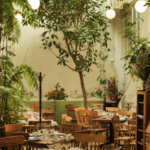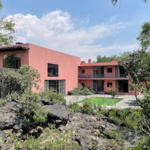Things To Do
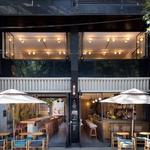
Licorería Limantour
Legendary cocktail bar turning out clever drinks & snacks in a chic, 2-story space with a terrace.
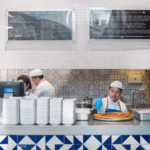
Churrería El Moro
Early evening is churro time in Mexico City—families, couples, and friends all go out for a taste of sweet fried dough and chocolate. You'll often find lines snaking around the block outside this beloved churrería. The one in Roma Norte has a cute interior with blue and white tile, bright lighting, and long communal tables. Watch the cooks dip, fry, and sugar-coat your long, spindly churro, which is paired with hot chocolate in a flavor of your choosing.
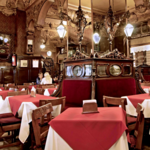
LA OPERA
The decor at this storied bar reflects its history: all dark, polished wood with tiled floors, filigreed ceilings, and frosted glass. It's as if you've stepped into the 1870s, when the bar first opened. Both tourists and after-work regulars come here for traditional tequila service—a shot with a side of sangrita (a salty-sweet tomato-based shooter). Sip a little tequila, chase with sangrita, suck on a lime wedge, and repeat.
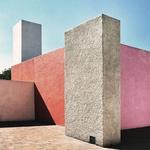
Casa Estudio Luis Barragán
The former home and studio of Pritzker-Prize-winning architect Luis Barragán has been transformed into a museum in Mexico City's Hidalgo District. Architecture and design lovers frequent the estate to study the artist's ingenious use of color, light, shadow, form, and texture. From the street, you'd never guess the personality that lies inside: The stark-gray façade humbly blends in with neighboring homes, but walk to the interior of the estate and you'll find striking walls in a kaleidoscope of bright colors, fountains, and pools.
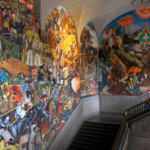
Palacio Nacional
Diego Rivera's famous mural The History of Mexico, showcases the Aztec era to the conquest to the Revolution to the development of industry. It's grandiose and captivating, a unique opportunity to learn about Mexico's past. Not to mention it's free: The mural is housed in a distinguished building east of the Zócalo that operates as a government office. Among the office workers milling about, you'll see a mix of local, national, and international tourists who come to be awe-stricken by Rivera’s masterpiece.
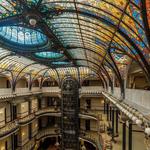
Gran Hotel Ciudad de México
Even if you're not staying at this hotel on the Zócalo, it's worth stopping just to see the jaw-dropping interior. The building originally opened as a department store in 1899. Since then, its art nouveau bones have been carefully maintained: The curving staircase is a replica of the one at Paris's Le Bon Marché, and the antique elevator, made of iron and concrete, was the first of its kind in Mexico City. But the pièce de résistance is the incredible Tiffany stained-glass ceiling, imported from France in 1908.
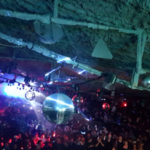
Patrick Miller
From the outside, this dance club looks like dumpy warehouse hidden behind a black gate in Roma Norte. But come on a Friday (the only day it's open), and you'll find a raging party that offers a glimpse of the city's extant disco subculture. An eclectic mix of party-goers show off their moves in dance circles to all kinds of music, from '80s and '90s classics to sub-genres of disco, such as Hi-NRG, Italo, and electro.
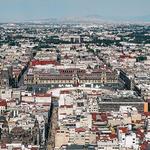
Juárez
The Juarez neighborhood has evolved in recent years. Once gritty, the area is now teeming with great boutiques, bars, parks, and restaurants like Masala y Maiz, which blends Mexican and Indian cuisines, and Niddo, a sunny corner spot that serves a divine brunch. There are loads of hotspots around the leafy central Plaza Washington: La Rifa for artisanal chocolates, Loose Blues for vinyls and vintage denim, and Cicatriz Café for natural wines and bright bites like basil bean salads.
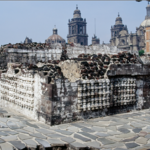
Templo Mayor Museum
Templo Mayor (translation: main temple) was the centerpiece of Tenochtitlán, the ancient Aztec capital, constructed in 1325 in the marshes of Lake Texcoco. The temple was mowed over and replaced by a cathedral during the Spanish conquest in 1521. Today, the hulking stone ruins lie at the heart of Centro Histórico, embedded in the blueprint of downtown. Surrounded by streets and buildings, it is hard to imagine the temples in their original Aztecan glory, but the nicely organized museum helps paint the full picture.
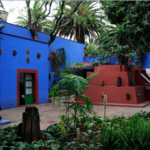
Frida Kahlo Museum
The museum, also known as "Casa Azul" for its shocking cobalt blue exterior, is where Frida Kahlo was born, raised, lived, and died. Visitors can take in a few paintings by Kahlo and her husband, Diego Rivera, in addition to other contemporary artists of their era. But perhaps more interesting is the voyeuristic window into their creative world. The home is carefully preserved and maintained; it's easy to image the spaces as they were during Kahlo's time. In addition to their personal effects and domestic materials, the collection of clothes and corsets Frida needed to support her body after her traumatic accident give an intimate look at the artist's daily struggles.
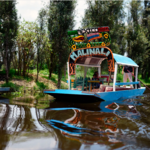
Floating Gardens of Xochimilco
Floating Gardens of Xochimilco Drive 40 minutes south of the city and you'll witness the closest approximation to the Valley of Mexico (in which Mexico City lies) before the arrival of the Spanish. The World Heritage Site of Xochimilco, the extensive lake and canal system that once connected most of the settlements in the valley, is an incredible vestige of the area's pre-Hispanic past. Start at the Embarcadero Belem dock to board a colorful gondola-like boat, called a trajinera, and explore the waterways and artificial islands or chinampas.
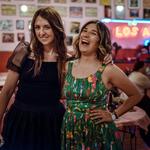
Eat Like a Local Mexico - Food Tours
Eat Like a Local, a Mexico City–based company, runs culinary tours that immerse visitors in the city's vast food scene. With a maximum of six people, the tours (which cover street food and markets) feel intimate and casual. Rocio has long been a food blogger, and her knowledge about Mexico City's food scene is on point. She's also passionate about connecting tourists with locals, and impacting Mexico City in a positive, sustainable way. There's a set itinerary, but she's flexible—so go on, order another mezcal or pork carnitas, if you like. Costing $100 and up, these tours aren't cheap. But they still feel like a good value. Rocio ensures all the food vendors are paid fairly and has created a social program that injects funds into various local initiatives, including a kids' education program.
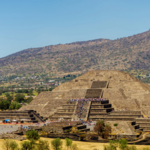
Teotihuacán Pyramids
The ancient Mesoamerican pyramids of Teotihuacán, in the Valley of Mexico, once served as the largest city in the pre-Columbian Americas. It is thought that during the first millennium A.D. the city had around 125,000 people, including multi-ethnic groups such as the Otomi, Zapotec, Mixtec, Maya, and Nahua. If you have a few days in Mexico City, it's worth the day trip. (Teotihuacán is about an hour outside the city by car.) Leave early in the morning so you can be back in the city by mid-day—and bring sunscreen!
